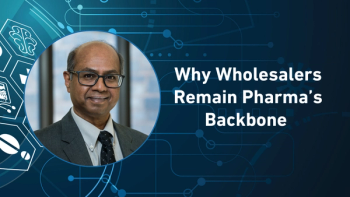
- Pharmaceutical Commerce - May/June 2011
US Supreme Court rejects Vermont's restriction on prescribing data for manufacturers
Decision rides on “free flow of commercial information,” according to the 6-3 vote
Evidence of how important the Supreme Court case of Sorrell vs IMS Health was to IMS can be seen in their near-instantaneous response to the decision, announced June 23. Their statement reads, in part, “Today’s ruling is clear and unmistakable — these types of laws violate the Constitution and do nothing to improve healthcare, reduce costs or protect privacy as proponents had claimed,” said Harvey Ashman, IMS Health senior vice president and general counsel. “Transparency is vitally important to advancing healthcare. The availability of information on the prescribing practices of physicians enables communications about new medicines, best practices and safety updates. This information is essential to improved patient care and safety.”
The
The State of Vermont (whose attorney general is William Sorrell), along with Maine and New Hampshire, have written laws to forbid data miners’ access to the data. Yet a crucial weakness of the Vermont law was that the same data could be provided to other parties for “health care research.” Under the evolving legal definition of first-amendment free-speech rights, “commercial speech” like the reporting that data miners would do with access to the prescribing data, can only be restricted when a variety of standards are met, and the Supreme Court ruled that these standards were not met. “Pharmacies may share prescriber-identifying information with anyone for any reason except for marketing,” according to the Vermont law, the majority-opinion writer, Justice Anthony Kennedy, says, “but if pharmaceutical marketing affects treatment decisions, it can do so only because it is persuasive. Fear that speech might persuade provides no lawful basis for quieting it.”
In a dissent, Justice Stephen Breyer argued that the prescriber data do not rise to the level of significance that warrants the “heightened” standard of judicial review of commercial speech, which should generally be reserved for speech that “reflects the constitutional importance of maintaining a free marketplace of ideas, a marketplace that provides access to ‘social, political, esthetic, moral, and other ideas and experiences.’” Justices Ginzburg and Kagan also dissented.
Both in this context as well as others, there has been a belief that physicians’ decisionmaking can not and should not be questioned; the restriction on publishing data on such medical topics as how well individual hospitals are performing has been another touchpoint for industry reviewers. But now, the precedent is in place for more transparency on these data.
Articles in this issue
over 14 years ago
Introover 14 years ago
What Makes a Pharmaceutical Industry Leader?over 14 years ago
How REMS Affect Pharmaceutical Distribution Processes and Partnersover 14 years ago
Patient-Administered Therapies Drive New Delivery System Designsover 14 years ago
For a Lucky Few, Biopharma Expansion a Reality Againover 14 years ago
Making Pallets a Supply Chain Asset Instead of an Unrecoverable CostNewsletter
Stay ahead in the life sciences industry with Pharmaceutical Commerce, the latest news, trends, and strategies in drug distribution, commercialization, and market access.



